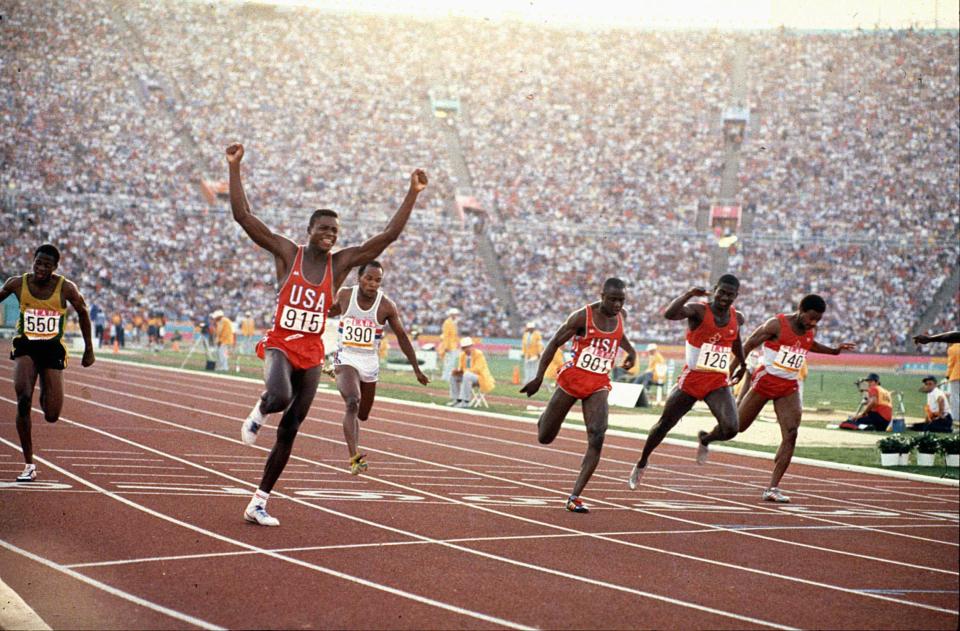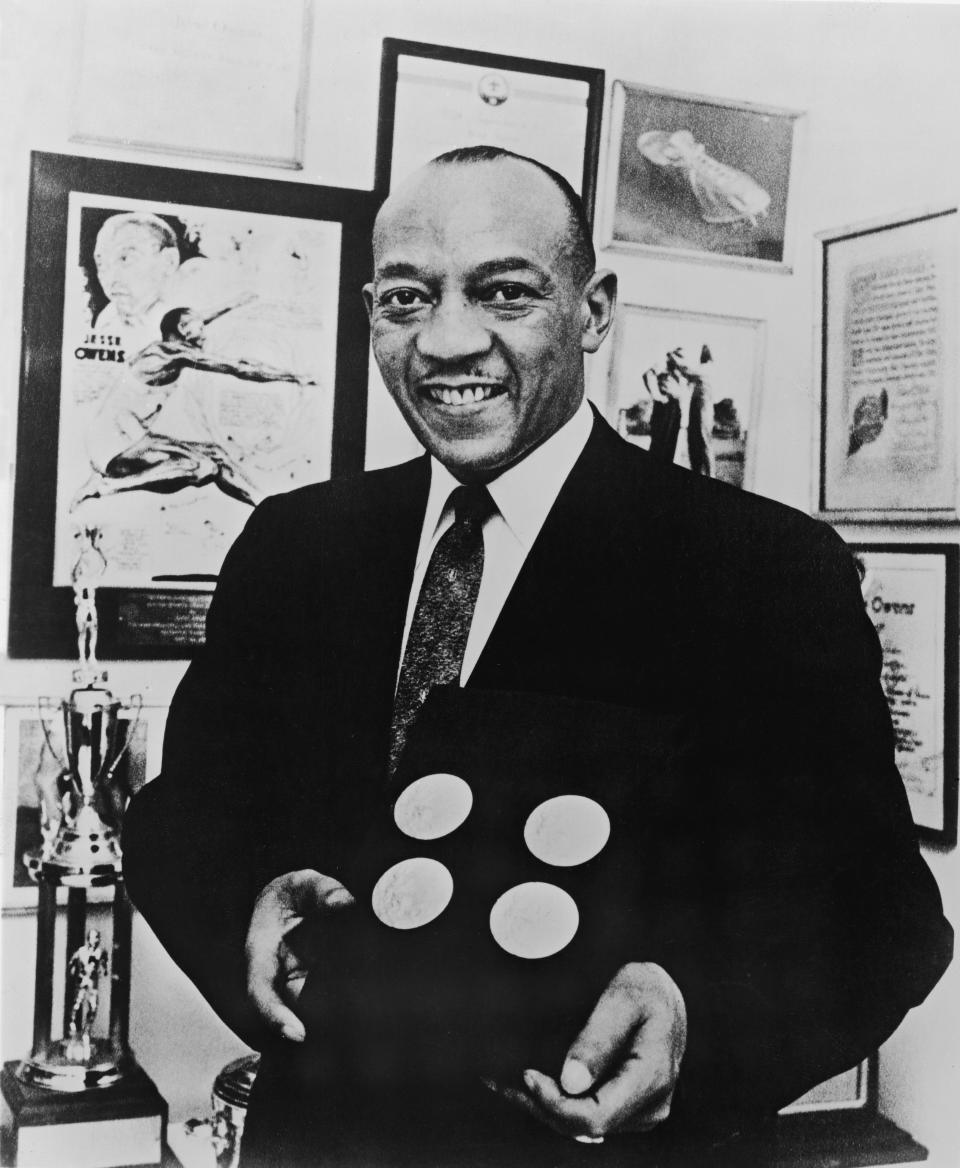Track legend Carl Lewis says no one can break Olympics record he holds with Jesse Owens
Sports are a microcosm of society. Perhaps there’s no better example of that than when Jesse Owens competed in the 1936 Berlin Olympics in the heart of Nazi Germany, persevered and won four gold medals in what is still an American track and field record for most gold medals earned at a single Olympics.
A new documentary about the late track and field legend called “Triumph: Jesse Owens and the Berlin Olympics” premieres June 19 on the History Channel.
Carl Lewis, the man who matched Owens’ four gold medals almost 50 years later at the 1984 Los Angeles Olympics, is featured in the documentary. USA TODAY Sports interviewed Lewis, 62, a nine-time Olympic gold medalist and the University of Houston's track and field head coach, about the documentary and the sport. Here are the highlights of that conversation.

Editor’s note: Questions and answers have been lightly edited for clarity.
The story of Jesse Owens transcends sports. Why should people watch this documentary?
Lewis: "The humanity of the story. The simplicity. It’s about competition. Somebody who is the greatest of their generation. One of the greatest athletes of all time. It’s about politics, race and antisemitism. Basically, if you break it down, it’s about exactly where we are today. We have an Olympics coming up right now, which I think will be fabulous in Paris. But we have Israel and Hamas war, all the problems and issues we have here in the states, we’re talking about an attack on diversity, equity and inclusion and the critical race theory, which is absolutely absurd. What’s sad in a lot of ways, is a lot of issues Jesse went through really are primary issues we are going through today. In a lot of ways if you just take out the sports part, it’s something to say, ‘Wow, have we really changed as much as we think we have?’ The political side is important as well as the athlete side."

What’s the significance of this documentary coming out on the holiday Juneteenth?
Lewis: "It’s very timely. It’s perfect to come out on Juneteenth. It brings a strong message that should resonate. In a lot of ways, the stories are the same because you’re talking about slavery and Jim Crow. … I think there’s a connection what he was going through in the 1930s and what Juneteenth represents."
You and Jesse Owens are forever linked having each won four Olympic gold medals at a single Olympics. Do you think any American track and field athlete can accomplish that feat?
Lewis: "No, not in Paris. I don’t think it’s ever going to happen. It won’t happen in my lifetime. The reason I say that is because society won’t let it happen. I’m a college coach and the kids can’t even do the workouts I used to do. It’s too hard. I don’t think we’re raising a generation of kids that can handle it.
"The Olympics are going to be in Los Angeles in four years. Wouldn’t that be incredible if somebody could do that and I’m still alive and could watch it and be inspired by it? But I just don’t see the way sports is going. I just don’t see it. And that’s the sad part because I would love to."
You were the face of track and field. Usain Bolt was the face in his era. Has anyone taken the reins as the new face of track and field?
Lewis: "You need a superstar. No one has won the 100 meters in consecutive international championships since Usain Bolt and Shelly-Ann Fraser-Pryce. It’s been someone different every single time. You hear casual track and field fans talking about that’s great that anyone can win it, but that’s not what the public wants. The public is used to having their teams to root for. And they want to be happy when you win and sad when you lose. And come back and win again.
"Noah Lyles right now I would say is the closest because he’s getting commercials. Sha’Carri (Richardson) is definitely close. People know her as well. They both won world championships. If they can win the Olympics, now we got something to work with. Those two could really build and grow.
"It’s about performance, who you are and what you do."
2024 Olympic Trials schedule: Swimming, Track & Field and Gymnastics
Track and field is one of the most participated in sports, but it isn’t among the most popular viewed sports in this country. What can track and field do to be more appealing to fans?
Lewis: "The sport is poorly marketed and poorly promoted. We have a lot of challenges that we have to deal with, but we’re not dealing with the challenges. We’re not bringing in people to say, ‘Hey, track meets should look like this. This should look like that. We should do this.’
"Track and field is still doing exactly what it did 50 years ago. What has to happen is a complete and total restructure from the top to the bottom."
Follow USA TODAY Sports' Tyler Dragon on X @TheTylerDragon.
This article originally appeared on USA TODAY: Carl Lewis says Jess Owens documentary on Juneteenth is 'very timely'

 Yahoo Sport
Yahoo Sport 






































